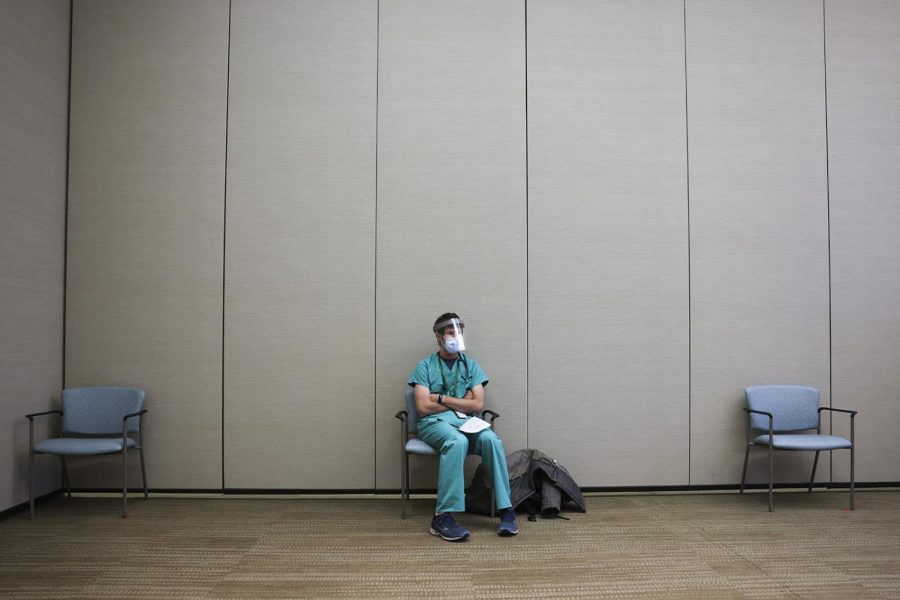WHO confirms new COVID variant
Though Omicron is spreading rapidly through the U.S. and the rest of the world, researchers say that the variant may be less severe
(Michael Ciaglo / Getty Images / TNS
Rocky Mountain Regional VA Medical Center internal medicine resident Luc Overholt sits in a waiting area before receiving a dose of the Pfizer-BioNTech COVID-19 vaccine at the hospital on Dec. 16, 2020, in Aurora, Colorado.
December 17, 2021
The World Health Organization classified a new variant of COVID-19 on Nov. 26. Called Omicron, the U.S. classified it as a Variant of Concern on Nov. 30.
This new variant is said to spread more rapidly but has more mild symptoms. Though the vaccines still protect against the variant, some studies show a 30% decrease in efficacy. Experts say that receiving a booster is still effective against hospitalization. The CDC recommends it to all who can get it.
Omicron was first discovered in Botswana on Nov. 11 and was classified as a variant of the Coronavirus and named on November 26 by the World Health Organization.
As of De. 12, the variant has spread to 27 states in the U.S., including Illinois. There have been no fatalities related to the Omicron variant.
The first omicron case in the Chicago area was identified on Dec. 7. The case was a Chicago resident, who was vaccinated. They were exposed by a traveler from out-of-state, and are now in quarantine. They did not require hospitalization.
The CDC is still heavily encouraging everyone to wear masks, as they protect from all variants. Vaccines and boosters are still recommended, as they reduce the risk of getting COVID-19.
Students at MCHS should take as much precaution as they can to help reduce their risk of getting and spreading Omicron and other variants of COVID-19.
Math teacher Jason Myhre says, “I would encourage students to wear their mask properly, get their vaccine, and get boosted so we can end this nightmare and get on with our lives.”











